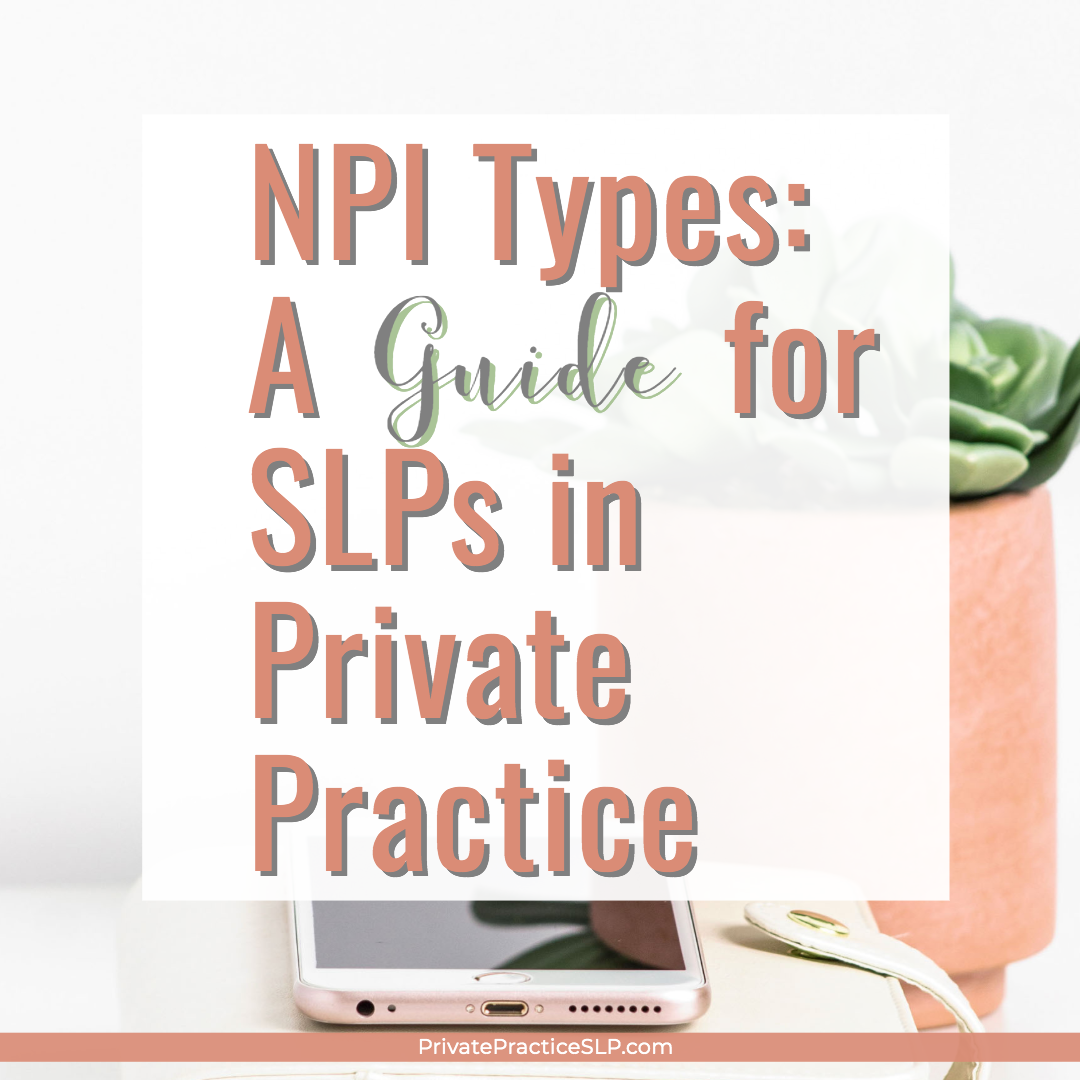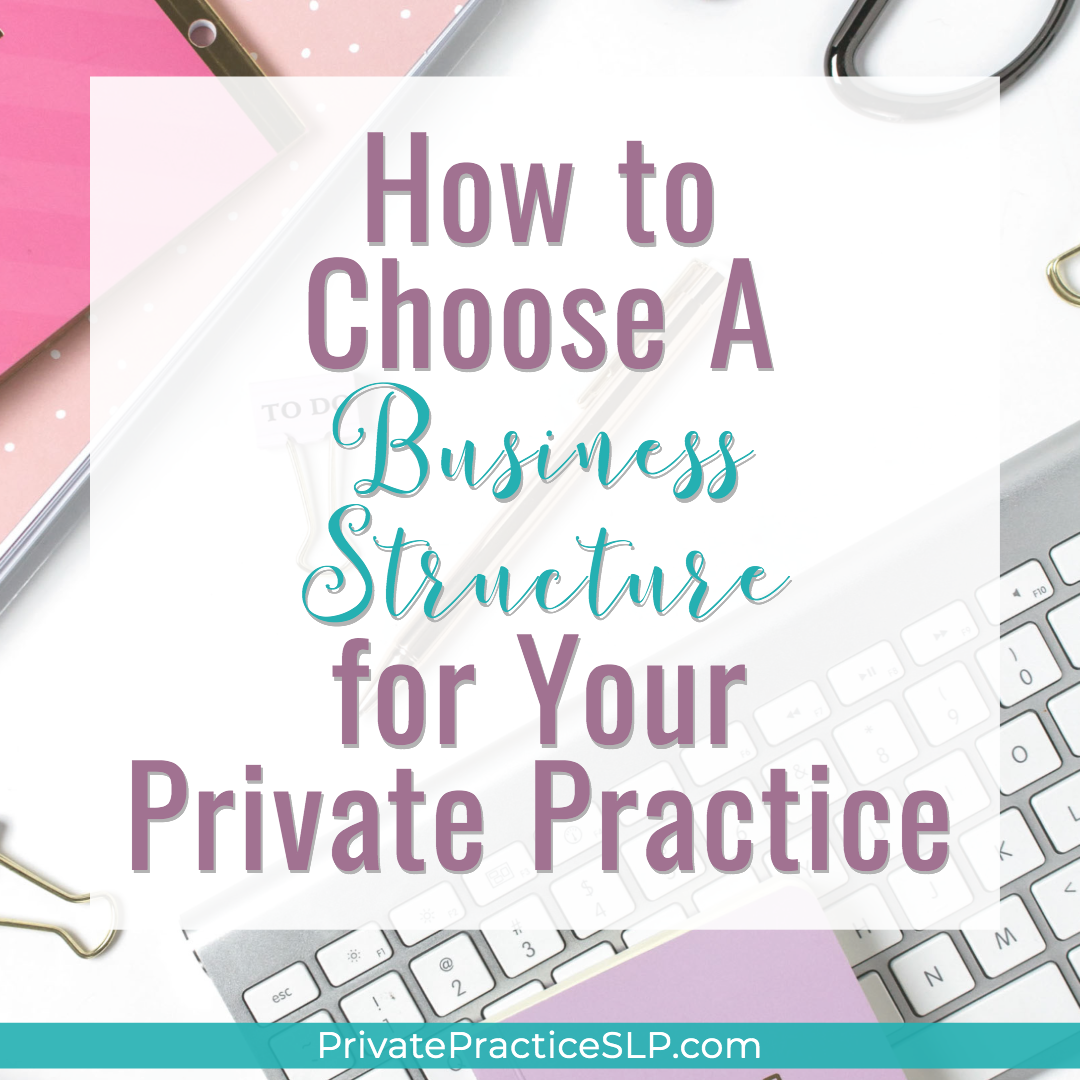5 Essential Steps to Starting A Private SLP Practice
When I decided to start a private practice, I had no idea what I was getting into. I thought I'd start seeing a few clients on the side, in the evenings after my full-time school job, to help pay off my student loans a little faster and maybe eventually branch out on my own. "I'm a good SLP and have decent organizational skills, this can't be that hard!" I thought. Boy, was I in for a surprise!
I wanted to start my practice legally, so I began researching how to set up a business. I thought choosing a business structure would be a quick Google search, but it ended up taking over a month. I had to learn about business structures (LLC's, sole proprietorships, corporations, etc) and find out what worked best for my needs in my state.
I spent hours researching taxes, CPA fees, and licenses, and many nights researching and freaking out about HIPAA compliance. What I learned is that all of the information you need to start a private practice is out there- but you have to dig for it! Nothing is in one convenient place.
So I decided to change that. Here is a list of the 5 things you MUST do to start your private SLP practice.
I have spent cumulative weeks of time researching the best practices to start a private SLP practice.
I compiled comparison charts and pro/con lists for almost everything I could think of, from business structures to accounting methods to EHR/EMR software (have you checked out the EMR Comparison Chart and Teletherapy Platform Comparison Chart in my Freebie Library?)
I learned that a lot of other SLP's have the same questions I did - so I decided to create a course that helps other SLP's start their dream practice without having to spend the time I did, reinventing the wheel.
To begin, these are the 5 things you must have to start a private speech therapy practice:
A business name. Decide this first, because it will be hard to change your logo, signage, website, etc. later. You will need your business name in order to do all of the other requirements. If you want to be an LLC, for example, then your official business name on your documents will need to have LLC in it.
A National Provider Identifier (NPI) number. You will need this in order to bill insurance companies, but even if you don't plan on accepting insurance, some clients will want to submit their invoices for reimbursement from their HSA and they will need your NPI number on the superbill to do that. Find it ahead of time so it can be on your paperwork. You can find your NPI here.
If you do not have an NPI already, then you will need to sign up for one on the NPPES site here.
If you decide on a business structure other than a sole proprietorship (confused about business structures? Learn more in this blog post) , you will need to apply for a Type 2 (group) NPI, which will be different than the individual NPI you already have if you have been working in the schools or a medical setting. I wrote a blog post about the different NPI types here
Liability Insurance. This is a non-negotiable. It doesn't matter if you're going to be seeing little Johnny down the street for his /s/ sound and his mom is going to pay you cash- you NEED liability insurance. You never know if little Johnny is going to slip and fall coming to your house, or if little Johnny's dog will bite you during a session at his own house. Liability insurance is about $100 a year and worth every penny. You can purchase this insurance from Mercer/Proliability through ASHA (log in and click "Time and Money-saving Benefits") or add it to a home or auto insurance policy you may already have with another company.
Note: unless you have an office space where you see clients, or you see clients in your home, you do not need general liability insurance.
An EIN. An Employer Identification Number (also known as a Tax Identification Number) is a must if you're going to be giving superbills or invoices to your clients or opening a business bank account. If you don't have an EIN, you have to use your Social Security Number on those superbills, and that's just asking for identity theft to be spreading your SSN around.
An EIN is free. There are MANY sites that will try to scam you into paying for one, so ONLY use the official government site at IRS.gov here.
HIPAA-compliant Email and Document Storage. HIPAA (the Health Information Portability and Accountability Act) is a big deal. As in, a-$5,000-fine-per-offense-if-you-break-any-regulations kind of big deal- even if you didn't know about the regulations. As a private practitioner, your clients'/ patients' data is considered Protected Health Information (PHI).
In schools, student data is covered under FERPA, which has less stringent requirements- unless the student receives Medical Assistance, in which case it is considered PHI and covered under HIPAA.
Whether you decide to keep paper notes or want to keep your notes on a computer, you will need to make sure you set up your system so it is HIPAA-compliant. Some options are Google Workspace (formerly GSuite) , which is what I use on the Business Standard plan, and Office 365. You will need to get them to sign a BAA with you in order to be compliant. Their plans run $12-15/month. (Confused about BAAs and HIPAA? I have a whole blog series about it here. )
If you have done all 5 of these steps and want to know more, check out my full-length Private Practice Essentials course , which is a step-by-step guide to starting and running a practice. It includes videos, comparison charts, and links to the resources you need, all in one place!
If a workbook is more your style, check out my Private Practice Handbook, a collaboration with Hannah Boeck.
Do you have any questions about the steps I've listed here? Leave them in the comments below, or set up a one-on-one video consult.








